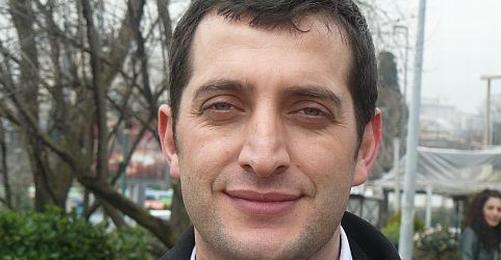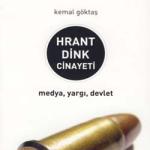In the hearing on Wednesday (15 September), the Istanbul 2nd Criminal Court of First Instance decided to transfer the file of journalist Kemal Göktaş to the Special Authority High Criminal Court where the suspects of the murder of Turkish-Armenian journalist Hrant Dink are tried. Turkey was recently sentenced by the European Court of Human Rights (ECHR) to a heavy monetary fine in the scope of the Dink murder. The founder of the Armenian Agos newspaper Dink was killed in front of his office in bold daylight on 19 January 2007.
Vatan newspaper reporter Göktaş stands trial on the grounds of his book "The Hrant Dink Murder: Media, Judiciary, State" related to the background of the assassination. It was claimed in the hearing that the offence he committed was "against the state security".
On the previous day (14 September) though, the ECHR had pronounced the judgement in the Hrant Dink case which was based on the conclusion that the police forces had not fulfilled their responsibility regarding measures to prevent the murder and that the investigations carried out were not sufficient.
Göktaş: Decision for lack of jurisdiction came at a remarkable point in time
Göktaş' lawyer, Filiz Aydın, appealed against the court's decision of lack of jurisdiction. If the appeal should be dismissed, Göktaş will be tried at a special authority high criminal court.
On the other hand, the case against the eight gendarmerie officers of Trabzon, who are accused of neglect of duty prior to the Dink murder, is tried at the Magistrate Criminal Court.
When Göktaş talked to bianet , he drew attention to the fact the Istanbul 2nd Criminal Court of First Instance decided for lack of jurisdiction only one year after the trial had been opened when the file was about to reach its final decision.
"Up to now, the court made a number of interim decisions such as rejecting the request of Ramazan Akyürek, Head of the Police Intelligence Department, to become a joint plaintiff in the case. In my opinion, it is against the law to decide for lack of jurisdiction after the case has almost reached its final stage".
The ECHR in Strasbourg had emphasized in its decision that the term "dirty blood" used by Dink in a certain context could not be evaluated as an "insult of Turkishness". The international court had furthermore decreed that freedom of expression is valid for all sorts of topics of public interest. Meanwhile, the Turkish judiciary is hunting down books that deal with the murder. Journalist Nedim Şener for instance is facing a similar prison threat for his book on the Dink murder.
While books are being prosecuted, the Hrant Dink murder case continues with trying a small group of people from the Pelitli district in Trabzon (eastern Black Sea coast). The case will be continued on 25 October.
Ministry says this, courts do that...
The Minister of Justice, Ahmet Davutoğlu, said that he regarded freedom of expression as a principle affair and that he had initiated efforts to reduce the number of files on freedom of expression and similar issues brought to the ECHR.
Davutoğlu had announced that the government was not going to submit any further defence for files on freedom of expression, apart from a few exceptions. The Ministry had furthermore declared not to appeal against the decision of the Hrant Dink case at the ECHR Great Chamber. (EÖ/VK)














